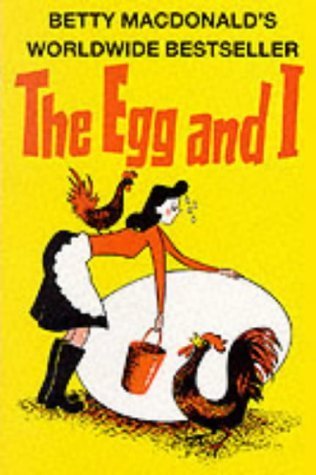What do you think?
Rate this book


288 pages, Paperback
First published October 3, 1945
Bob had been a Marine in World War I and instead of being shell-shocked he carried home a fixation that a helmetful of water was enough to wash anything, including blankets, and on Monday morning he would say cheerfully at breakfast, “Going to wash today?” and I would answer hopefully, “Yes, it’s going to be a HUGE ENORMOUS washing!” And so Bob would go whistling down through the orchard to the spring and bring back about four tablespoonfuls in the bottom of each bucket and then disappear into the woods where he remained incommunicado until lunch…. The water was so hard it should have been chipped out of the spring and even when mixed 40-60 with soap produced nothing but a greasy scum and after a day spent scrubbing clothes in that liquid mineral I could peel the skin of my hands like gloves….Bob was irritatingly casual about my washing and ironing and was continually putting on clean clothes, when he could get them away from me. I got to be just like a dog with a bone over anything I had washed and ironed…. It was just that I wanted him to be conscious of the fact that it took a terrific amount of back-breaking labor to keep us in clean clothes and occasionally to comment on it.
I became so biased that no matter how melodramatic the plot, I watched only to see if the heroine did any work or if she seemed to have all the conveniences of modern life. If she didn’t work and seemed to have plenty of opportunity to take big hot steamy fragrant baths, I lost all interest in the plot. Under such circumstances who gave a damn who got the man.
We awoke one moring to a new Sears, Roebuck catalogue; baby chickens, thousands of them; a new little red-haired baby girl; little yellow goslings; two baby pigs; a puppy; two kittens; a little heifer calf; fruit trees snapping into bloom all over the place; a newly plowed plot for the biggest garden in the world; stream and lakes brimming; trilliums, wild violets both purple and yellow, camas and starflowers carpeting the woods; fences to mend; seeds to plant; seed catalogues to dream through; Government bulletins to choke down and digest; and no rest ever any more…. I was so ebullient from the sun and warmth that even the fact that I had to dogtrot through the long days, in order barely to scratch the surface of my thousands of new duties, failed to dampen my ardor.